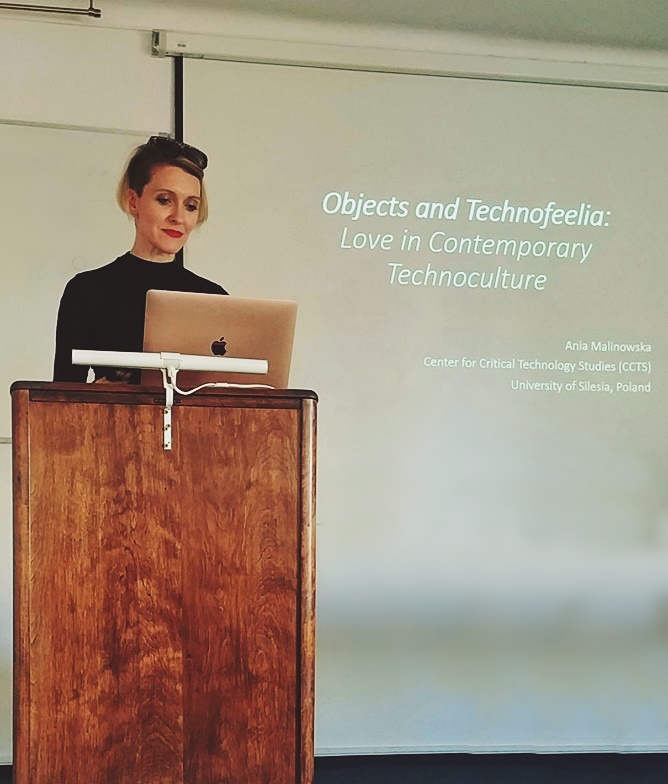We are pleased to announce a lecture by
Dr Anna Malinowska
University of Silesia
Objects and Technofeelia: Love in Contemporary Technoculture
The lecture is to be the first from the American Studies
Colloquium Series in this academic year.
Thursday, October 10, 2019
at 4:00 p.m
Where?
American Studies Center, room 317,
al. Niepodległości 22, Warsaw.
What?
This presentation aims to explain the semiotic and material dimensions
of love and how those two impact the ontologies of loving in technoculture. It will specifically engage into discussing the changes in “the substance of living” – and a human condition suspended between the organism and the machine – in order to see their impact on the substance of love. Our guest will speak of technological objects and their role in shaping amorous relationships, as well as touch upon technology, which considered responsible for this seeming change, exposes the semiotic constructedness of loving.
Who?

Anna Malinowska is an Assistant Professor at the University of Silesia, Poland. She spent last year at the New School in New York where she was doing a research project sponsored by Fulbright. She is a coeditor of Materiality and Popular Culture with Karolina Lebek, The Popular Life of Things (Routledge 2017) and The Materiality of Love: Essays of Affection and Cultural Practice with Michael Gratzke (Routledge 2018). She also wrote (with Toby Miller) Media and Emotions. The New Frontiers of Affect in Digital Culture (a special issue of Open Cultural Studies, 2017). She has authored many papers in cultural and media studies. Currently, Anna is working on a monograph titled Feelings Without Organs. Love in Contemporary Technoculture.




